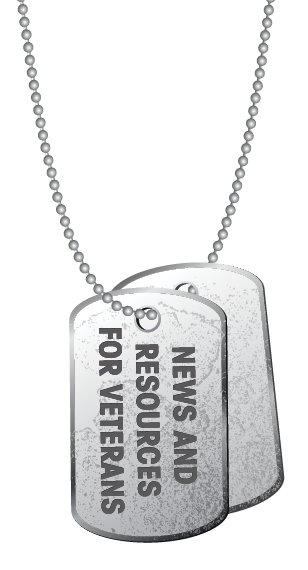Unique Challenges for Female Vets
March 1, 2018
 (This article first appeared in the March-April 2018 issue of the American Postal Worker magazine)
(This article first appeared in the March-April 2018 issue of the American Postal Worker magazine)
Record numbers of women are serving in the military and this means more female veterans. More than two million women currently account for 10 percent of our country’s veteran population and that number is steadily growing. Women are entitled to the same benefits as men, but our system of care is designed for men and not equipped to meet many of the unique challenges our women veterans face.
A Women Veterans Task Force, implemented by the Veterans Administration (VA) to ascertain and address the needs of our female veterans, identified several critical areas that need attention.
The VA and Department of Defense (DoD) hospitals and medical centers are woefully understaffed. They lack facilities and specialized equipment necessary to meet gender-specific health care needs. More than a third of these medical facilities are without reproductive health care specialists, despite an increasing demand for this type of care. One in five women delay or go without feminine care annually.
Specialized inpatient mental health care intended to meet the needs and preferences of women, including peer support and group therapy, is insufficient. The VA has also been unable to keep up with the number of women returning with service-connected disabilities. Female amputees are less likely to get support and care tailored to meet their needs, or even receive a properly fitting prosthesis.
To address these issues, the VA has created a Center for Women Veterans. Every VA medical center nationwide now has a Women Veterans Program Manager (WVPM) available to advise women and advocate on their behalf. They coordinate primary and specialized care, ranging from chronic conditions to reproductive health.
Civilian organizations, like the Disabled Veterans National Foundation and the Disabled American Veterans Organization, are also helping by providing critical support to disabled and at-risk vets that fills some gaps left by the VA health care system. The DoD’s National Resource Directory can be another valuable tool, listing more than 17,000 organizations that provide assistance – all have been thoroughly vetted by the DoD.
Sexual abuse, harassment, and assault have reached epidemic proportions in the military. Twenty percent of women enrolled in VA health care screen positive for military sexual trauma (MST), but more than 31 percent of VA centers cannot provide adequate services.
To better assist MST victims, each VA facility now has a designated MST Coordinator to serve as an advocate. They can help access VA services and programs. Coordinators can assist with enrollment for state and federal benefits, and provide access to community resources, including free, confidential counseling and treatment. You do not have to qualify for other VA care to obtain these services. Incidents do not have to be reported or documented to obtain assistance or treatment. To learn more about MST and other violence and abuse, you can visit maketheconnection.net.
Unemployment rates are higher for post-9/11 female veterans than their male counterparts and non-veteran women. Medical and mental health concerns exacerbate challenges in the labor market. A new employment initiative, the Gold Card program, is being offered by the Department of Labor to provide unemployed post-9/11 era veterans with the intensive follow-up services needed to succeed in today’s job market.
Female vets are at least twice as likely to be homeless as civilian women. They are also more likely to be single parents. Regardless of gender, no one should suffer homelessness, especially our veterans and their children. Homeless veterans and those at imminent risk should call or visit their local VA Medical Center or their VA Community Resource and Referral Center to seek assistance.
There are still deficiencies to overcome, but the VA has made some beneficial strides. If you are in need of assistance, or to learn more, contact your WVPM or call the Women Veterans Hotline 855-VA-WOMEN/829-6636.
-Human Relations Department



